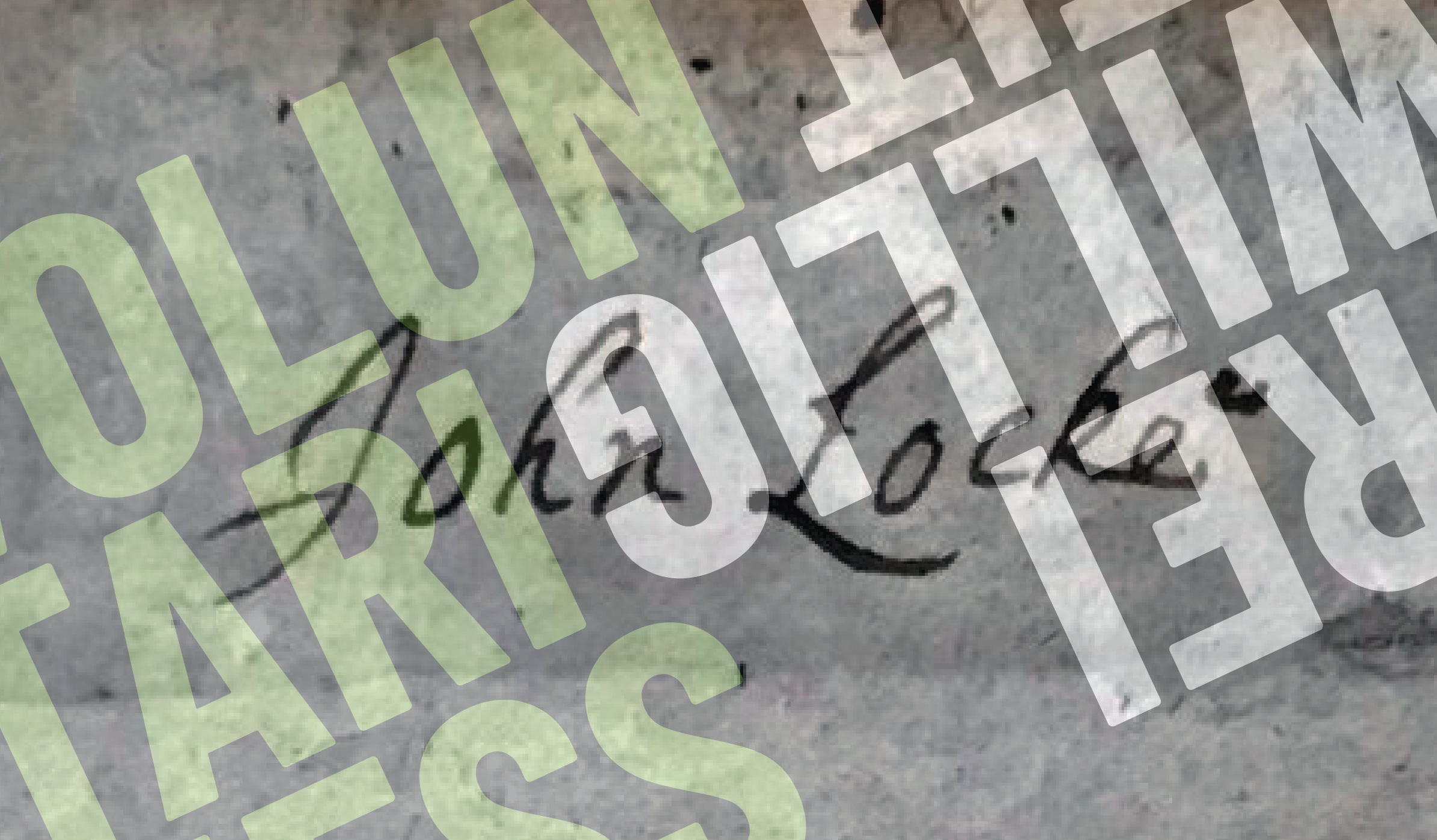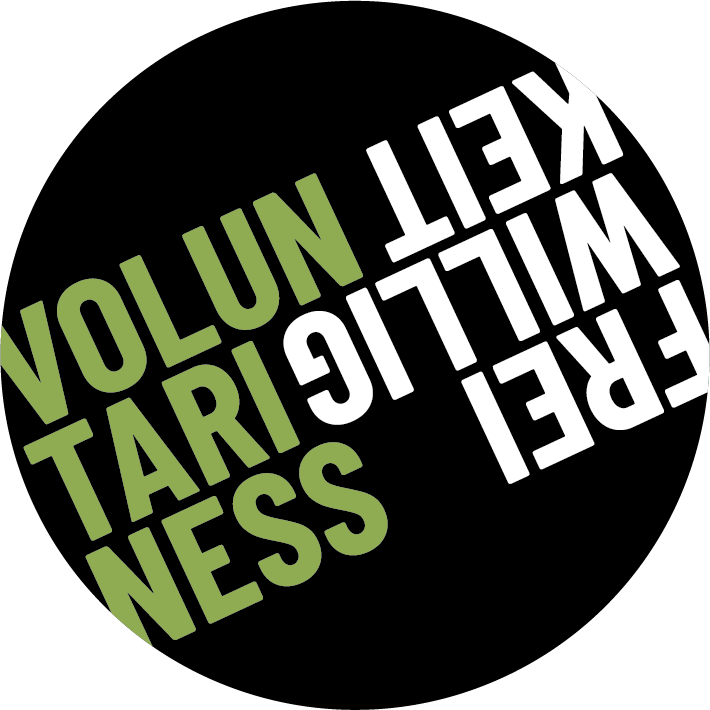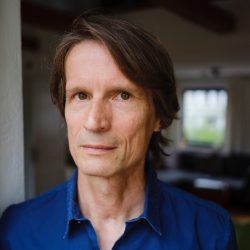
The Lockean Subject: Voluntariness and the Essence of Being Human
Since the seventeenth century, the idea of the human being as a self-owning, autonomous, voluntarily acting agent has become deeply embedded in liberal political thought. In the neoliberal age of the last fifty years or so, this notion has shaped political and everyday action more than ever before, becoming even more profoundly entrenched in the concept of ideal subjecthood. However, this so-called Lockean subject has come in for criticism in the wake of the escalating global ecological crisis. It is simply fundamentally inadequate, assert Dipesh Chakrabarty and Bruno Latour. On this view, people do not bring about phenomena such as global warming as individual agents, but only collectively and over extended periods, and such challenges can be met only through the same kind of approach. It is, moreover, scarcely going out on a limb to suggest that the state of the planet will continue to deteriorate as long as the voluntarily acting, autonomous, self-sufficient subject remains the lodestone of political thought and action.
The question is how, and through which discursive strategy, the Lockean subject has managed to become anchored at the heart of political thought and action—becoming, in fact, its simultaneous starting point and key focus. Any attempt to get to the bottom of this must begin with John Locke himself, for putting forward perspectives on the present. Locke places at the center of his political theory a human being who is fundamentally capable of voluntary action. For him, this is the prerequisite for, and starting point of, the political order, which derives its legitimacy from the idea that it operates in the interests of humankind. In the Two Treatises of Government, written in the 1680s to propagate an alternative to authoritarian kingship, Locke identified the formation of a “voluntary union of men” as the wellspring of a liberal political order. “Politic societies [of free men] all began from a voluntary union,” we are told in the Second Treatise.
Voluntariness, Desire and Political Order
If we follow Locke, voluntary action is at the core of such a political order and at the same time precedes it. This is because human beings are capable of acting voluntarily by virtue of being human. In his epistemological Essay Concerning Human Understanding, Locke wrote that the capacity for voluntary action is in fact what constitutes humans as such: “Voluntary motion, with sense and reason, [is] the nominal essence of the [human] species.” Locke published his epistemological magnum opus around the same time as his aforementioned key political text, the Two Treatises of Government, in which voluntariness takes on concrete political form as a theory of contract. Voluntariness is the hinge that connects Locke’s epistemology and his political philosophy. This is because the ability to act voluntarily is the prerequisite for becoming a political being, for breaking free of the shackles of coercive authoritarianism, for entering into a social contract and thus for establishing a free society founded on voluntary actions. The Lockean subject is a voluntarily acting subject, and it is conceived as the wellspring and pivot of a liberal political order.
Locke locates voluntariness at the interface between human will and the human body. Their interaction, he writes in the Essay Concerning Human Understanding, is triggered by a genuinely, naturally, and universally conceived human desire to attain happiness and avoid misery. For Locke, desire is a productive force of almost Deleuzian potency. It is simply there, keeps the world in motion, is the engine of being and the condition of possibility for voluntary action. In this theory, the specific object of desire remains undefined. More important than the object of desire for Locke and the Lockean subject is that people are endowed with the ability to relate to their desire by initiating or refraining from, continuing or ending conscious bodily movements, such as raising an arm or taking a step. Further: “The [initiation or] forbearance, of that action, consequent to such order or command of the mind, is called voluntary.” Following Locke, life itself is in fact nothing more or less than a perpetual process of relating to one’s own desire. “It is that train of voluntary actions,” states Locke in the Essay Concerning Human Understanding, “which makes up our lives.”
Locke’s political anthropology formed part of the revolutionary resistance to the English monarchy and in particular to James II. It replaced coercion with voluntariness, while substituting individual self-determination and property rights for authoritarian rule, which had been closely tied to the large-scale landholding of the few. Formulated against the backdrop of seignory, Locke’s theoretically indeterminate concept of desire nevertheless took on concrete political form in the shape of land ownership. A new political order, Locke believed, ought to serve the satisfaction of human desire, be grounded in the essence of human nature, and thus provide space for the human faculty for deciding how to relate to one’s wishes and desires. Any other political order would be at odds with human nature.
Leadership through Guidance
Yet the Lockean subject was from the outset Janus-faced. The proclamation of this subject’s liberal right to the satisfaction of his individual needs was directed against the authoritarian rule of the English crown. At the same time, this liberal right was white and male, and Locke’s political anthropology was situated not only within the context of resistance to feudalism, but also that of settler-colonial expansion, land-grabbing and enslavement. Hence, the individual and political right to act voluntarily and without external coercion went hand in hand with the exclusion, oppression, dispossession and exploitation of others. Furthermore, it entailed systemic neglect of the effects of action, which require a broader perspective. To put it differently, a single English settler’s farm on Chesapeake Bay was arguably a rather minor problem. But the swarms of colonial settlers occupying the North American continent in its wake had genocidal consequences. A similar argument could be made about the present. The individual’s ecological footprint might seem a fairly minor issue. Yet, en masse, it becomes a geophysical force.
John Locke did not concern himself with the Janus-faced nature of the liberal subject, too deeply was he entangled in the expansionist and dehumanizing projects of the seventeenth century. Locke invested in the Royal African Company, enshrined slavery in the constitution of the Carolina colony and assessed the implications of slavery relative to the broadest possible expansion of settler colonialism in Virginia. In the 1690s, however, Locke also reflected on the extent to which the voluntarily acting subject should and could be guided in his actions. He contemplated a type of leadership that, rather than being geared towards discrete acts, would embed guidelines for decision-making within the subject and his action through guidance and education—so deeply, in fact, that these guidelines seem to emerge from the subject himself. Voluntary decision-making about one’s actions thus takes place within a preformed field that frames voluntariness, as emphasized by philosopher Hina Nazar. The subject continues to decide freely, but is concurrently guided.
Being a Lockean subject, then, may well mean more than wishing to be able to pursue every desire immediately and even asserting the right to do so. It also entails the ability to pause, to weigh up different desires, to recognize and factor in the desires of others and “the greater good,” to identify with them and, as philosophers Harry G. Frankfurt and Christian Bock might put it, to allow space for second- or even third-order desires. Nor does the associated forbearance of instant gratification mean the infringement of liberties for the Lockean subject, as contemporary critics routinely lament. On the contrary, as political philosopher Dirk Schuck underscores, for Locke it is the capacity for forbearance that establishes true freedom of action in the first place.
Suggested Citation: Martschukat, Jürgen: “The Lockean Subject. Voluntariness and the Essence of Being Human “, Voluntariness: History – Society – Theory, August 2024, https://www.voluntariness.org/the-lockean-subject/.





